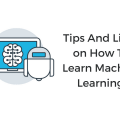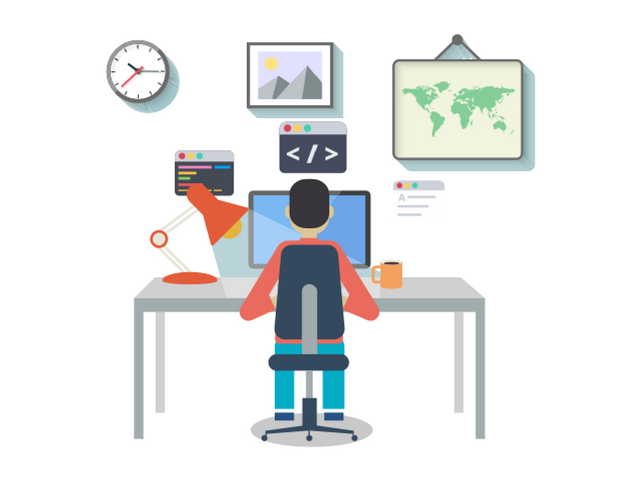Artificial Intelligence (AI) is one of the fastest-growing fields in the world today, and it’s not hard to see why. With the power to automate tasks, process large amounts of data, and make predictions with accuracy, AI has a lot of potential to transform the way we work and live. However, learning AI development can seem like a daunting task, especially if you’re starting from scratch. In this article, we’ll explore how to learn AI development in a short period of time.
Understand the basics
Before diving into AI development, it’s important to have a solid understanding of the basics. This includes programming languages such as Python, machine learning algorithms, and data structures. Without a good foundation, it’s easy to get lost in the complexities of AI development. There are plenty of resources available online for learning the basics of programming and machine learning, including online courses, tutorials, and books.

One of the best resources for learning Python, a popular programming language for AI development, is the official Python documentation. It’s comprehensive, well-organized, and includes plenty of examples to help you understand the language. Another excellent resource is Codecademy, an online learning platform that offers interactive courses in Python and other programming languages.
As for machine learning algorithms, there are many resources available, but one of the best places to start is with Andrew Ng’s Machine Learning course on Coursera. It covers the fundamentals of machine learning, including linear regression, logistic regression, neural networks, and more.
Practice with real-world examples
Once you’ve learned the basics, it’s important to apply them to real-world examples. This can help you understand how AI development works in practice, and it can also help you identify areas where you need to improve your skills. There are many resources available online that offer real-world examples of AI development, including Kaggle, a platform that hosts data science competitions, and GitHub, a platform for sharing and collaborating on code.
Kaggle offers a variety of datasets and challenges that you can use to practice your machine learning skills. For example, the Titanic: Machine Learning from Disaster challenge asks you to predict which passengers survived the Titanic shipwreck based on various features such as age, sex, and ticket class. This is a great way to practice using machine learning algorithms to make predictions.
GitHub is another great resource for finding real-world examples of AI development. You can search for open-source projects that use machine learning, natural language processing, or computer vision and use them to learn from others’ code. You can also contribute to these projects by fixing bugs, adding new features, or improving documentation.
Join online communities
AI development can be a lonely pursuit, but it doesn’t have to be. There are many online communities where you can connect with other AI developers, ask questions, and get feedback on your code. These communities can be a great way to learn from others and stay motivated.

One of the most popular online communities for AI development is Reddit’s Machine Learning subreddit. It’s a place where developers and enthusiasts discuss machine learning, deep learning, and other AI-related topics. You can ask questions, share your projects, and get feedback from other developers.
Another great online community is GitHub’s AI section. Here, you can find open-source projects, contribute to them, and connect with other developers who are interested in AI development. There are also many online forums, such as Stack Overflow and Quora, where you can ask questions and get help from the community.
Take courses and attend workshops
While online resources are great for learning AI development, they can only take you so far. To truly master AI development, you may need to take courses and attend workshops. These can provide you with hands-on experience and help you learn from experts in the field.
There are many online courses that offer in-depth training in AI development. Some popular platforms include Udacity, Coursera, and edX. These platforms offer a variety of courses, from beginner to advanced, in areas such as machine learning, deep learning, and natural language processing. They also offer certificates and even degree programs in AI development.
If you prefer in-person training, attending workshops and conferences can be a great way to learn from experts in the field. Many universities, research institutions, and companies offer workshops and training programs in AI development. These can provide you with hands-on experience and allow you to network with other AI developers.
Build your own projects
Perhaps the best way to learn AI development is to build your own projects. This will give you the opportunity to apply your skills to real-world problems and gain experience working on end-to-end AI projects. You can start with small projects, such as building a simple chatbot or image classifier, and work your way up to more complex projects.
One great resource for building AI projects is Google’s TensorFlow. TensorFlow is an open-source machine learning library that can be used to build a wide range of AI projects, including computer vision, natural language processing, and robotics. It includes pre-built models and tools that can be used to get started quickly, and it also has an active community of developers who contribute to the project.
Another popular tool for building AI projects is PyTorch. PyTorch is an open-source machine learning library that is designed to be flexible and easy to use. It includes a wide range of modules and tools that can be used to build complex AI models, and it also has an active community of developers who contribute to the project.
Final thoughts
Learning AI development is a challenging but rewarding journey. With the right resources and mindset, you can learn the basics in a short period of time and build your skills through practice, community, and projects. Remember to start with the basics, practice with real-world examples, join online communities, take courses and attend workshops, and build your own projects. By doing so, you’ll be well on your way to becoming an AI developer.





